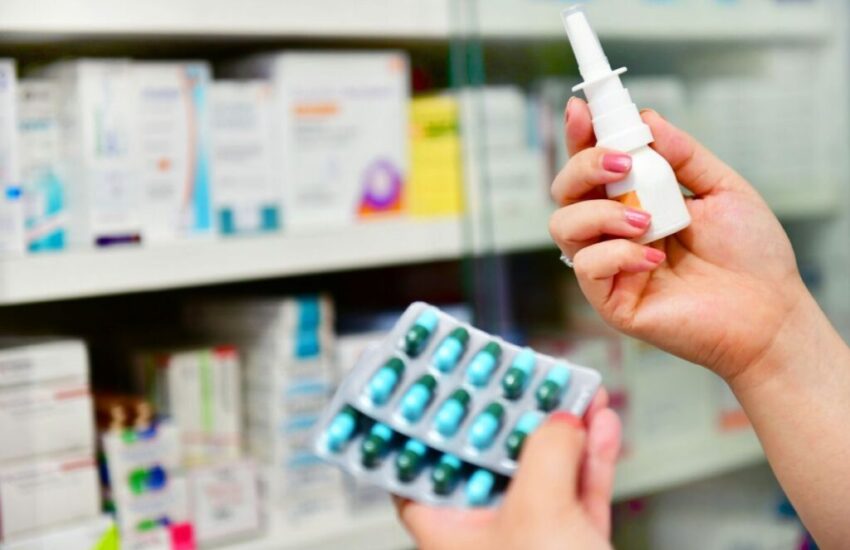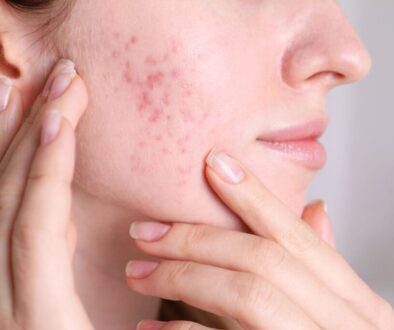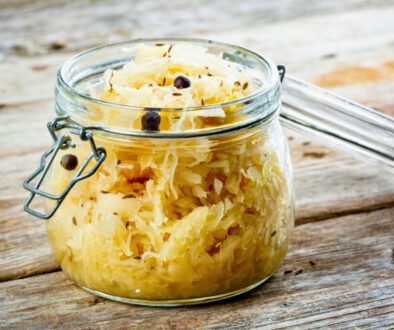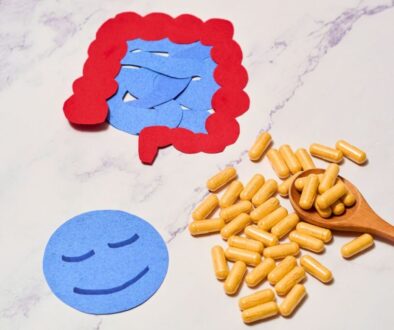Probiotics vs. Nasal Spray for Sinus Infection

Published February 24th, 2020
Sinusitis is one of the most common health problems in the US. Experts estimate that it affects about 31 million people around the country. It’s also responsible for the $150 million that Americans have spent in prescription medications.
A go-to treatment for people suffering from a sinus infection is nasal sprays. But new studies suggest that probiotics may help too.
So which is more effective for sinus infection, probiotics or nasal spray? Both options have their pros and cons. To better understand how they work, let us first discuss why sinus infections happen.
Causes of Sinus Infection
A sinus infection can either be viral or bacterial.
When a virus lodges in your nasal cavities, it can cause inflammation which leads to sinus infection. Viral sinus infections usually go away on their own within 10 to 14 days. Since it’s caused by a virus, antibiotics don’t work.
A bacterial sinus infection, on the other hand, is usually treated with antibiotics.
Other factors that may contribute to sinus infection are:
- narrow sinus openings
- nasal polyps
- nasal bridge deformities
When to Use Nasal Spray
When mucus builds up in your sinus cavities, it can lead to nasal congestion and a host of other symptoms. Nasal sprays help flush out this build-up and reduce swelling in your nasal passages.
There are four types of nasal sprays you can buy over-the-counter:
Corticosteroids
They are best known for calming inflammations and providing relief from sneezing and runny nose. They are also used for treating hay fever or nasal allergies. It may take several days before you can feel its full effect.
Since this is a type of steroid, using it for long-term can have side-effects such as nosebleed, cataract, and headache.
Nasal Decongestant
This type of nasal spray cannot cure sinus infection. But it can provide temporary relief from stuffiness by shrinking the blood vessels in your nose.
Since its effects are temporary, nasal decongestant sprays can be addictive. This can cause the body to become resistant to decongestants leading to permanent swelling of the nasal tissues. Some people may even find it difficult to breathe without using decongestant sprays.
To avoid this, the American Academy of Asthma, Allergy, and Immunology recommends using it only twice a day for 3 days.
Antihistamine
One of the most common non-prescription antihistamine sprays is cromolyn sodium. Since it applies medicine directly into your nose, nasal allergy symptoms are treated at the source. This helps reduce side effects which is why you can use it for up to 12 weeks.
Saline
As its name implies, a saline nasal spray has one essential ingredient: salt. The combination of salt and sterilized water loosens and thins the mucus in your sinus. This allows you to get rid of nasal congestion and breathe more easily.
Since it doesn’t contain drugs or chemicals, it’s safe for people of all ages. You can also use it for however long you want.

How Probiotics Help with Sinus Infection
Aside from your gut, your nasal passages are also home to billions of bacteria – both good and bad. This is called the nasal microbiome. And keeping a balance of the good and bad bacteria is essential to a healthy nasal microbiome. When that balance is disturbed, it can lead to bacterial infections.
This is where probiotics enter the picture. Also known as the “good bacteria”, these microbes help restore balance to your nasal microbiome. Several studies have proven that a healthy microbiome can boost your immune system which helps them respond better to foreign pathogens.
Remember, inflammation is your body’s natural response to the presence of a foreign pathogen or allergen. If your immune response is skewed, inflammations can burst out at the slightest sign of an allergen.
In bacterial infections, antibiotics are usually prescribed. But the problem with antibiotics is it not only kills the harmful bacteria. It also flushes out the good ones. In the long term, this can affect your immune responses.
Probiotics help you avoid all this. Doctors at the Baylor College of Medicine observed that probiotics lessen symptoms of sinus infections in their patients. This is also supported by a clinical trial published in 2016 where 77 people were given probiotic supplements for 8 weeks. Results show that their symptoms have significantly reduced after the probiotic treatment.
Probiotics vs. Nasal Sprays
In essence, nasal sprays mainly mask the symptoms of sinus infections. It does not cure the infection nor does it help in chronic cases. Plus, there is always the possibility of addiction. So, if you’re just looking for temporary relief from your symptoms, nasal sprays are handy.
Probiotics, on the other hand, address the problem at the roots. So it not only relieves symptoms, but it also reduces the risk for future infections. Since it’s already present in your body, there is also no risk of any major side effects.
What probiotics are effective in treating sinus infections?
Each probiotic supplement contains specific strains that perform different functions. Taking probiotics specifically targeted for gut health may not work on respiratory infections. Thus, you need to look for a supplement that has strains specifically for sinusitis.
One strain that’s clinically proven to relieve inflammatory response is Bifidobacterium Lactis Bl-04. It’s also proven to be very good for fighting off rhinovirus.
Probiotic supplements like Bionaze, which is formulated with both Bl-04 and BLIS K12 strains, are specially targeted for ear, nose, throat and mouth infections. As such, it’s very effective in alleviating nasal allergies and inflammations.
Did you find this post about Probiotics vs. nasal spray for sinus infection helpful? Check more helpful articles on our blog.
Benefit From The Latest Advancements In Probiotic Science With Bionaze
Bionaze is a proprietary blend of probiotics proven to promote ear, nose, and throat health, improve digestion, and support your immune system. The active ingredients BLIS K12, and BL-04 are considered among the best probiotics according to science.
Get 25% Off Your First Order when you use BIO25 at checkout!

This Content Has Been Reviewed For Factual Accuracy
This content has undergone thorough fact-checking by our team of internal experts. Learn more about the meticulous editorial standard for our website here.
ADVERTISEMENT

About The Author
Judy Ponio is a professional writer based in the Philippines. Her commitment to communicating factual content in when writing is unmatched. She works hard to cross check reputable sources to ensure her work uses accurate facts.




